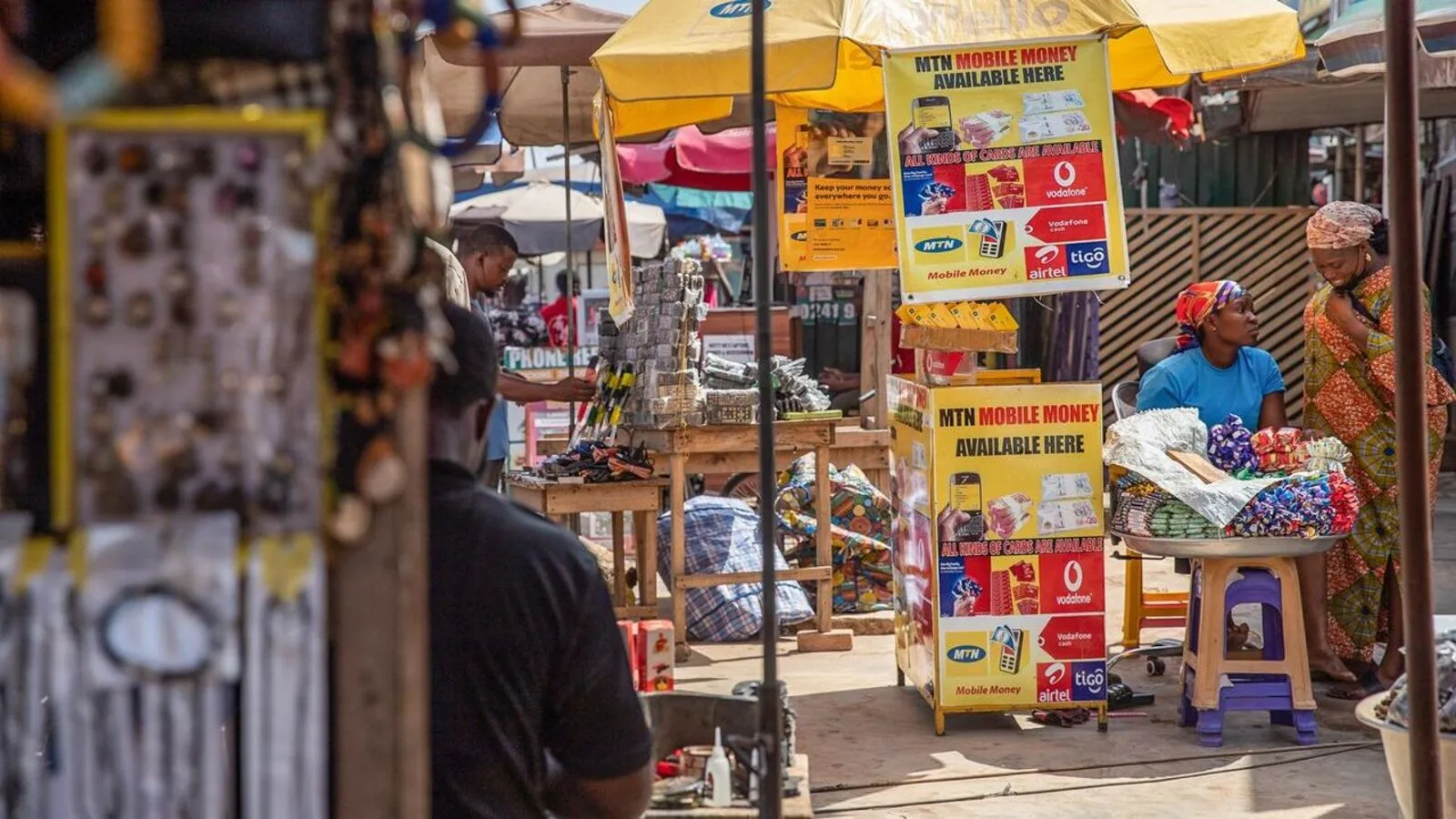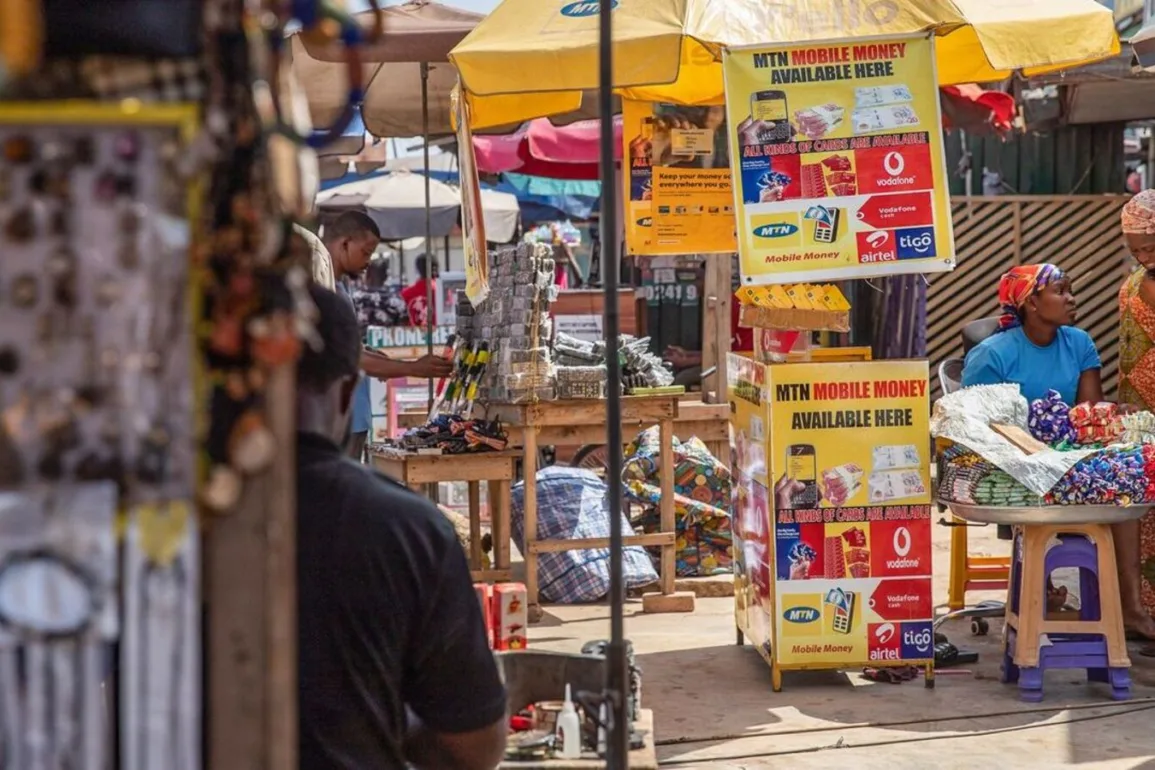
Global payment giants, including Mastercard and Visa, are pouring billions of dollars into African companies that have powered a sharp expansion in e-commerce on the continent. Recent deals have focused on mobile-money operators, which allow users to send funds using simple cellphones, and platforms that facilitate such payments for merchants such as Uber Technologies, Netflix or Estée Lauder without relying on credit cards or bank accounts.
The investments come on the back of extraordinary growth in e-commerce in Africa, where online transactions have long lagged behind other regions, especially North America.
By the end of this year, the U.S. Commerce Department expects some 435 million Africans will be spending money online, nearly double the level before the coronavirus pandemic. Since then, many consumers on the continent have continued to shop, study and entertain themselves using electronic payments.
In August, Mastercard agreed to take a minority stake in the fintech business of South African telecommunications provider MTN Group—little known in the U.S., but a juggernaut in Africa and the Middle East. MTN said the deal, which hasn’t been finalized, values its fintech business at $5.2 billion. The size of Mastercard’s stake wasn’t disclosed, but it could go up to 30%, according to MTN.
The deal followed an announcement by Mastercard rival Visa in late 2022 that it would invest $1 billion in Africa over the next five years to expand its operations on the continent, and in particular, its digital-payment reach. As part of that pledge, earlier this month the company welcomed the first cohort of 23 startups to its Visa accelerator program for African fintech startups focusing on growth and mentoring. Visa plans to invest in select participating businesses after completion of the program.
In 2021, Mastercard invested $100 million in the mobile-money business of Airtel Africa, majority-owned by Indian telecom giant Bharti Airtel, valuing the business at $2.65 billion.
“The growth of mobile and digital technology [in Africa] presents a tremendous opportunity,” a Mastercard spokesman said. “We’re working with partners to ensure technology is relevant to the people who use it…our partnership with MTN supports this goal.”
In contrast to popular payment apps like PayPal or Venmo in the West and Alipay in China, mobile money isn’t connected to an underlying bank account. Telecom services process the transactions and accounts are linked to phone numbers. Africa is fertile territory for mobile money because of the lack of traditional bank branches, their distance from most rural areas and the fact that many people earn little money.
MTN’s mobile-money platform Momo surpassed Africa’s original mobile-money service, M-Pesa, in subscribers last year. Momo had 60.5 million monthly active users as of June 30, while M-Pesa, which was launched in Kenya in 2007, had 51.3 million monthly active users as of March 31, the latest data available.
The value of MTN’s mobile-money transactions increased 62% to $135 billion during the six months ended June 30 from a year earlier.
Over the past decade and a half, African countries have spawned a litany of different financial services via mobile-money accounts, mostly on phones. They act as savings and checking accounts, facilitate and offer loans, process payments for companies in markets where credit cards are almost nonexistent and allow Africans to send and receive money from abroad.
“There’s a massive market there that requires other alternatives” to traditional payments methods, said Karen Nadasen, chief executive for Africa at digital-payments platform PayU, which is majority-owned by Africa’s largest public company by market value, Naspers.
PayU and Flutterwave, Africa’s largest startup based on the last round of venture-capital investment, are payment-services providers that allow merchants to process mobile-money transactions, as well as more traditional payments using credit cards and bank accounts.
“They can broaden the scope of what the consumer can do with that e-wallet, inside and outside of the country it’s registered in,” said Ashley Olson Onyango, head of financial inclusion at the GSM Association, a nonprofit industry group. “It’s helping mobile money evolve.”
In August, the same month that Mastercard sealed its deal with MTN, Naspers said it would sell PayU’s Latin American, Central and Eastern European and African operations to Rapyd, an Israeli fintech unicorn, for $610 million. Rapyd’s customers include Meta Platforms, Netflix and Inditex, the owner of Zara.
Founded in Lagos, Nigeria, and now based in San Francisco, Flutterwave’s valuation tripled to $3 billion in February 2022 from a year earlier, when the company raised $250 million from investors including Facebook co-founder Eduardo Saverin’s B Capital Group.
Homegrown African fintech firms are often better able to spot openings in the market and can move faster to put together new products.
Flutterwave in September launched a new product in Nigeria that allows users to legally exchange their naira currency for U.S. dollars. Such painless transactions were an unimaginable luxury just months ago, when the Nigerian central bank tightly rationed access to foreign currency to stabilize the naira.
Olugbenga Agboola, Flutterwave’s co-founder and chief executive, was supported by Nigeria’s central bank to set up its Swap product after the country’s new president, Bola Tinubu, abolished the naira’s peg to the dollar in June. The product came together in a matter of months, giving Africa’s most populous nation and largest economy access to dollars.
Flutterwave is now looking ahead at plans for an initial public offering. “Right now, we are just trying to cross our t’s, dot our i’s,” Agboola said.
Write to Alexandra Wexler at alexandra.wexler@wsj.com



